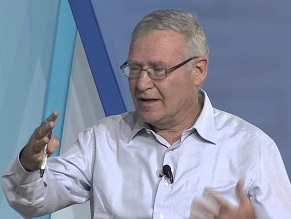|
World Jewish News

Former IDF intelligence chief Amos Yadlin, who heads the Institute for National Security Studies, announced that he was joining the Zionist Camp.
|
Likud takes lead in polls for first time since Zionist Camp formed
02.02.2015 While last week the Zionist Camp (the united list of Labour and Hatnuah) was ahead of the Likud by two seats in the polls, this week, the party of Prime Minister Benjamin Netanyahu’s party reached the top spot in a Panels Research poll taken for The Jerusalem Post and its Hebrew sister newspaper, Ma’ariv Sof Hashavua.
The poll results followed a deadly strike by Hezbollah on the northern border with Lebanon Wednesday, which killed two IDF soldiers, and came shortly after the Knesset parties finalized their slates for the March 2015 elections.
The poll found that the Likud would win 25 seats, the Zionist Union 24, Bayit Yehudi 14, the Joint Arab List 12, Yesh Atid 11, United Torah Judaism and Koolanu eight, Shas seven, Meretz six, and Yisrael Beitenu five.
The percentage of respondents calling themselves “undecided” fell from 30% to 18%.
The percentage of respondents saying they do not want Netanyahu to remain Prime Minister fell to 52% from 55% last week and 58% the week before.
While all other polls taken since the election season began found that the issues Israelis vote on most are the gap between rich and poor and other socioeconomic matters, the new poll found that the security situation is now the voters’ top priority, 39% to 25%. Only 1 percent of respondents said the issue that would decide the vote most would be Israel’s foreign relations.
While all other polls taken since the election season began found that the issues Israelis vote on most are the gap between rich and poor and other socioeconomic matters, the new poll found that the security situation is now the voters’ top priority, 39% to 25%. Only 1 percent of respondents said the issue that would decide the vote most would be Israel’s foreign relations.
A total of 26 parties registered candidates for the March 17 general elections.
EJP
|
|
